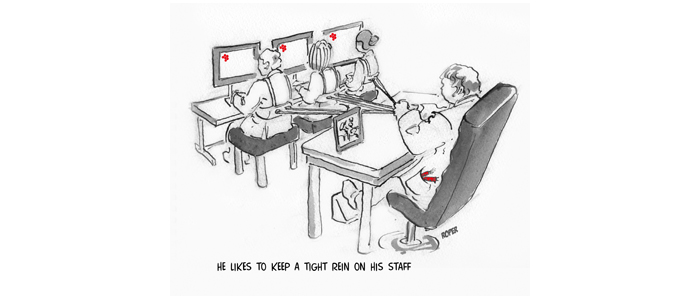As a leader, it’s your job to spot what’s going right. To do that, you must habitually make it your business to find out. Here are five good reasons why you should make the effort.
So many organisational leaders seem to regard it as their job to spot things that are going wrong and put a stop to them. This is horribly demotivating for your staff and co-workers – just think what it would do to your kids or your partner if you habitually did this to them. So how can you break the habit and stop doing it at work?
Well, take a lead from what you do at home (hopefully!). Look around you for things that are going right. Observe for yourself precisely what the person did that resulted in a good outcome. And if you don’t know or can’t see it yourself, then start asking questions.
Why should you take the trouble to do all this?
- You may learn something useful yourself.
- It gives you the chance to inform your team member that they have a skill they probably take for granted and are therefore not aware they have.
- It’s a tremendous motivator for a person to know that their efforts are appreciated, and that you’ve taken the trouble to pinpoint exactly what they did that was so successful.
- Because praise for something well done will result in those same skills being exercised on a future occasion.
- And because positive face-to-face feedback is very impactful, far more than a ‘well done’ email, and has a habit of trickling down throughout the organisation.
An employee in a client company once told me that his boss, the MD, had asked to see him; he thought he was in for some sort of reprimand. But instead, he told me, his MD had not just told him what a great job he’d done, but ‘even touched me on the shoulder’ while doing so. And it was this small gesture that got round the whole place in a day.
In fact, sometime before this, I had let the MD know that his employees were telling me that he never gave positive feedback. I had asked him to try it out – face-to-face – and listen for any positive results of doing so. So my client also got positive feedback about the effect of his giving positive feedback for a job well done.
In your positive feedback, it’s important to say what you particularly thought was well done – don’t just say ‘thank you’, or ‘well done’ (though you can say these too). What skill was demonstrated – tenacity, clarity, knowledge, creativity? It will take a bit more effort and digging on your part, but doing this will inevitably result in the person sharpening up that skill still further – to gain more recognition, further great results, and more positive feedback.
It is impossible to give too much praise for something well done. It’s something that deep down we all yearn for – much more than we normally get, much less than we normally receive. Recognising skill and positive results will set you apart as a leader. And watch out for the impact on the rest of your team members. You know it works at home – now try it at work, too.

